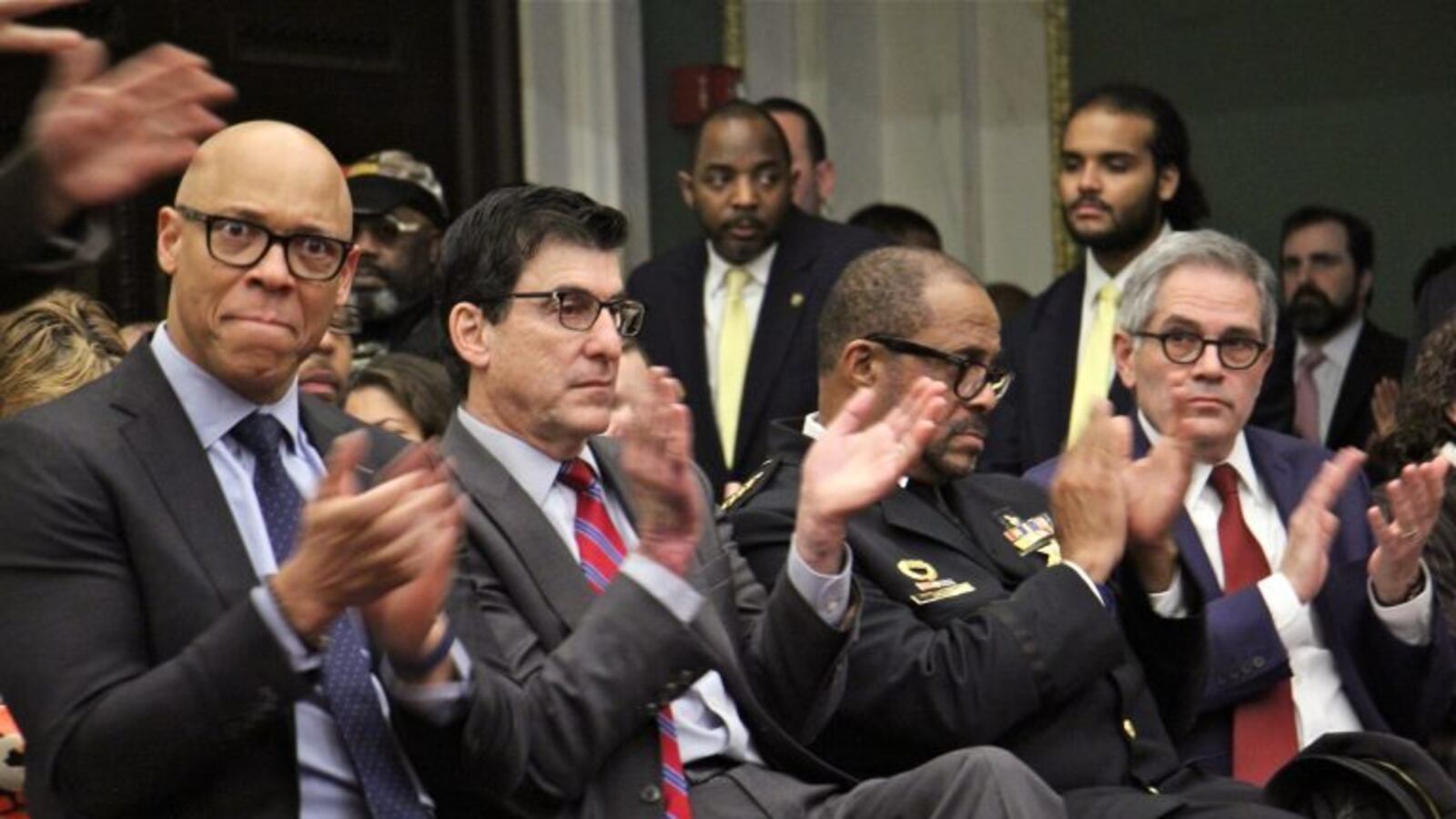This article was originally published in The Notebook. In August 2020, The Notebook became Chalkbeat Philadelphia.
The day his budget proposal went public, Philadelphia’s Mayor Kenney made an impassioned plea for $980 million in new school funding over the next five years.
The mayor’s annual budget address before City Council crescendoed with a 10-minute riff — much of it unscripted — on the critical need to cover the School District’s impending deficit and set it on a course to long-term financial stability.
“These are our kids,” Kenney said. “They’re no one else’s kids. And no one else is coming to their rescue.”
What’s the mayor’s case for a tax hike?
When Kenney called for dissolving the state-controlled School Reform Commission and the restoration of a locally appointed school board in the fall, he also called on the city to make a big investment in public schools.
No one knew exactly how big until Thursday, when the mayor asked for $980 million over the next five years.
Much of that money would come from a 6 percent bump in the city’s real estate tax rate. Kenney also wants the city to increase the real estate transfer tax, scale back planned reductions in the city’s wage tax, and increase the city’s regular contributions to its public schools.
Those are the details, though.
What Kenney did in his Thursday speech was make a moral and civic argument about the importance of the city’s school system, which has flirted with fiscal disaster for decades.
Without committing to education, Kenney said, the city’s high poverty rate will remain high and its social safety net will remain costly.
“We need to pay for our kids’ future,” he said while pounding his fist on the podium. “Because in the end, the 26 percent poverty rate that we have as a city will only be reduced through education.”
Kenney believes the School District’s stability will be more than just a growth proposition, though. He believes it will deliver a psychic boost to a city of students, many of whom have grown accustomed to crises and austerity.
“They’re hungry for one thing that students and families in other parts of this state take for granted: hope,” Kenney said.
Haven’t we been here before?
If some of this seems familiar, that’s probably because this is hardly the first time in recent memory that the School District has asked city officials for more money. Four times during Mayor Michael Nutter’s administration, City Council approved real estate tax increases. Three were smaller than the one Kenney is requesting, but one was significantly larger.
City Council also approved a tax on cigarettes in 2016 to generate more dollars for the public schools.
Some of the hikes followed cuts in state aid. Other came in the wake of a recession that left many government agencies reeling.
But the economy has recovered significantly and state aid has started to increase again under Gov. Wolf. So why does the District still project a $900 million deficit over the next five years?
District officials say the problem is structural. Expenses are simply rising faster than revenues.
The two main drivers of this imbalance are teacher pensions and charter costs. Both are fixed obligations tied to state law and policy.
Pension costs are climbing because the state is trying to dig out of an underfunding hole created by past fiscal decisions. Meanwhile, the District must pay out more and more money to charter schools to keep pace with the growing number of city students who choose them.
After Thursday’s speech, many Council members lauded the mayor’s ambition and general aim.
“Mayor Kenney’s proposed budget is a crucial investment into our public schools, ensuring a long-term commitment toward financial stability for Philadelphia schoolchildren,” said Councilwoman Helen Gym.
But when it came to his specific proposal, there was significant pushback.
Council members’ concerns fell into four major buckets.

